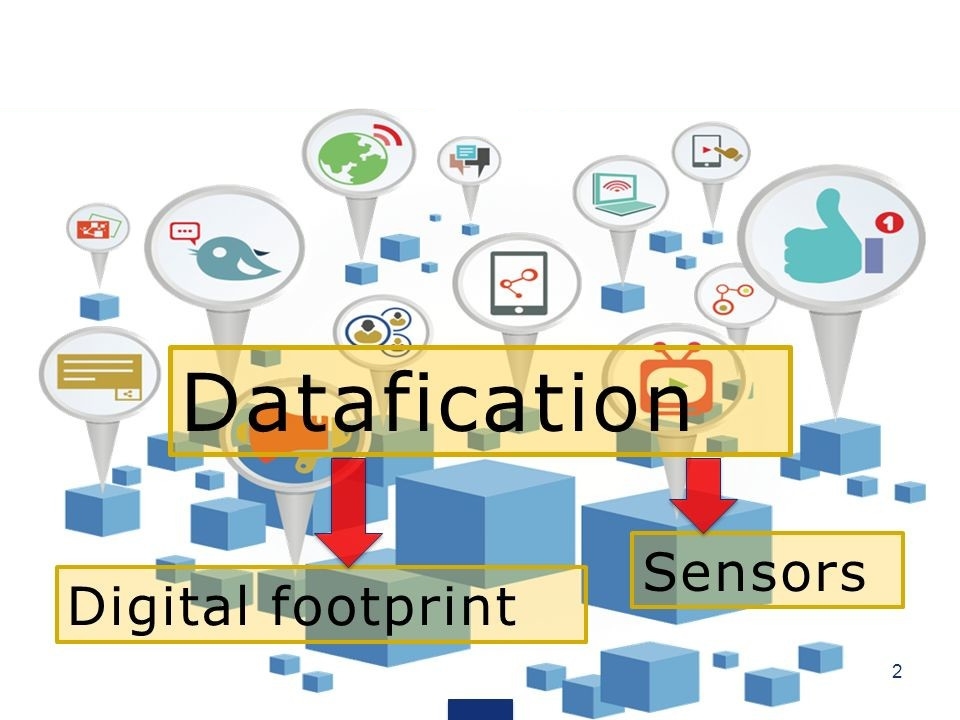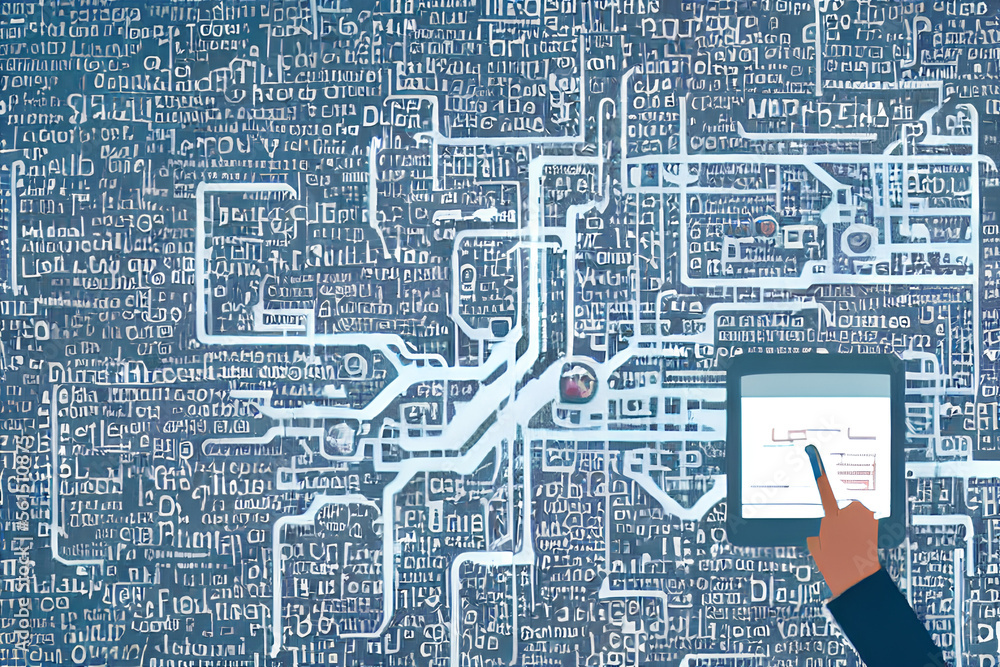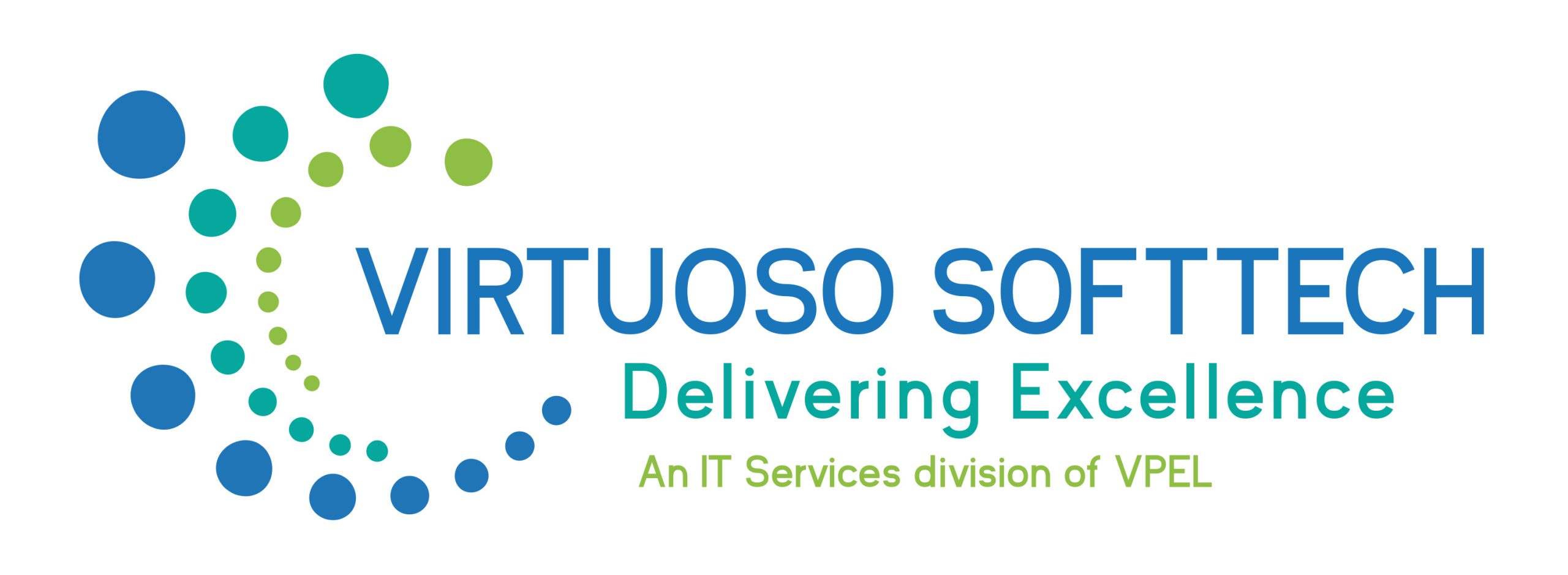Harnessing the realms of data for a improved future
In recent years, the world has observed a tremendous shift in the way data is collected, analyzed, and used. This shift has been referred to as “Datafication”. It refers to a process of converting various aspects of life and business into data, which can then be analysed to uncover insights and drive decision-making.
The datafication of our world has been driven by several factors, including advances in technology, the growth of the internet, and the increasing availability of data-gathering tools.

The most significant benefit of datafication is the ability to make data-driven decisions. By collecting and analysing vast amounts of data, organizations can now make more informed decisions based on these data-driven insights, which is particularly true in businesses, where data can be used to make informed decisions about their products, marketing strategies, and operations.
For example, organizations can use the data to more profoundly understand their customers and market by collecting data about their behaviour, preferences, and buying patterns, which can help the organization to tailor their products and services to better meet the needs of its customers.
Additionally, data analysis can also be used to optimize marketing strategies and target the right customers with the right message at the right time.
Datafication: Improving Quality of Life and Efficiency
The datafication of our world also has a significant impact on the way we live. Data is constantly being used to improve the quality of our life in many ways, from improving healthcare outcomes to reducing traffic congestion.
For example, healthcare providers are using data to better understand the health of their patients and develop personalized treatment plans. This helps to improve patient recovery and reduce the cost of care.
Yet another significant benefit of datafication is the ability to improve efficiency and reduce waste. Organizations, after collecting and analyzing data, can identify areas where they can streamline processes and reduce waste.
For example, data analysis can be used to optimize supply chains, reduce energy usage, which can overall improve the efficiency of an organization.

However, the datafication of our world also raises some concerns, of which the most prominent being the risk of creating a digital divide.
As more and more data are collected and analysed, the divide between those who have access to the data and those who don’t, widens.
This exponential rise can have a profound impact on a society, as those without access are at a disadvantage state when it comes to informed decision making.
For example, people in rural areas may not have access to the same quality of healthcare as those in urban areas, simply because the data required to make informed decisions is not available in the rural areas.
Similarly, small businesses may struggle to compete with larger organizations that possess a wider access to changing data which lays an upper hand for them to gain a competitive advantage.
This divide also possess the ability to impact the quality of an education. Those students who live in the technology-prone areas may not avail the same quality of education as those in the areas with more resources. This creates a cycle of disadvantage which is tough to break, which further impacts the skillset and awareness of an individual to succeed in a data-driven world.
Risks of Misuse of Data: Taking Measures to Protect Privacy and Security
The most devasting challenge posed by datafication is the potential for the misuse of data. As more data gets collected and studied, there is always a growing risk that this data could be used to manipulate or deceive individuals.
For example, data analysis and data breaching of the sensitive information can be used to manipulate public opinion and decision-making. By targeting personalised advertising, they can aim to influence the customer’s behaviour and choices one makes which lays a profound effect on humankind.
Thus, in order to address these concerns, it’s important to develop strong data privacy and security policies. This includes implementing measures that needs to be taken by the organisations to protect data from theft or misuse, such as enabling encryption and multi-factor authentication etc.
Being transparent about the data they collect and how it is used, and allowing individuals to control their own data, would allow more transparency as well.
In addition, government also plays a critical role in regulating the datafication of our world. Setting and enforcing the strong standards for data privacy and security, through laws and regulations, can promote the responsible use of data and ensuring that data-driven insights are reliable and trustworthy.
There is also a role for the wider community in ensuring that data is used responsibly. By raising awareness about the risks and challenges posed by the datafication of our world, and promoting colleagues of being more mindful while dealing with the data, can ensure a perfect balance between progress and precautions.
Responsible Use of Data-driven Insights
Regardless the benefits to this datafication shift, it also presents us with an ample space for both opportunities and challenges that needs to be addressed. While data-driven insights can be used to make more informed decisions and improve the quality of life we live, it also holds a hazardous capability to change the world.
Hence, it’s important for us to be more responsible and ethical while responding to this digital divide. The law guarantees, by working together, we can ensure that the datafication of our world has a positive impact on society and the individuals who make it up.



